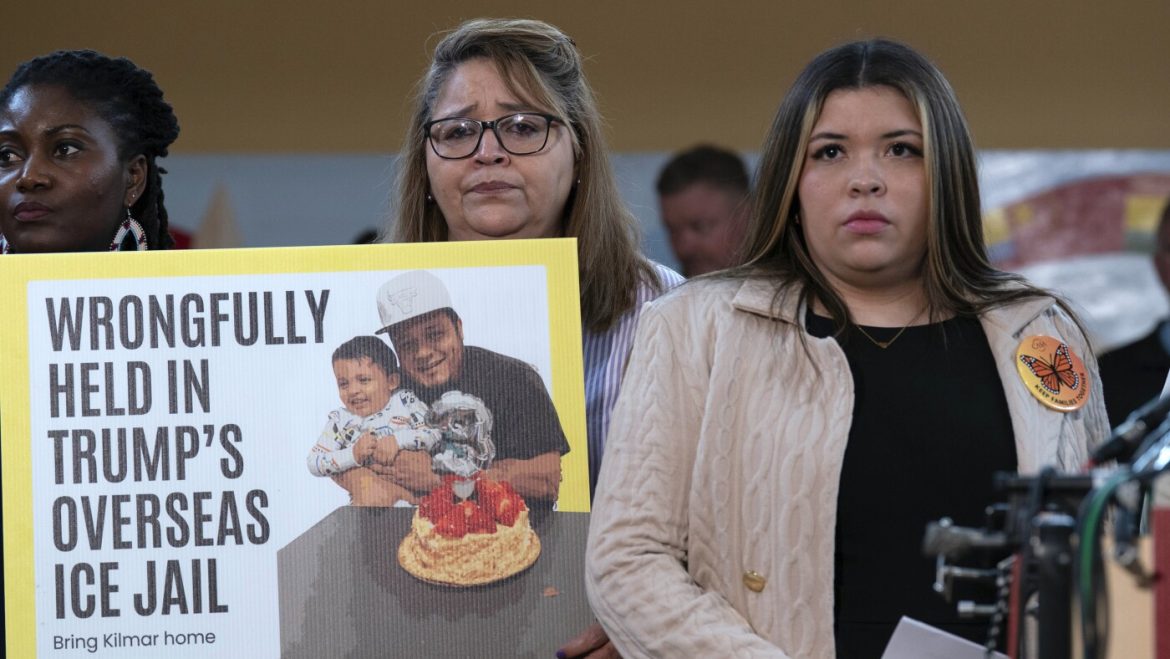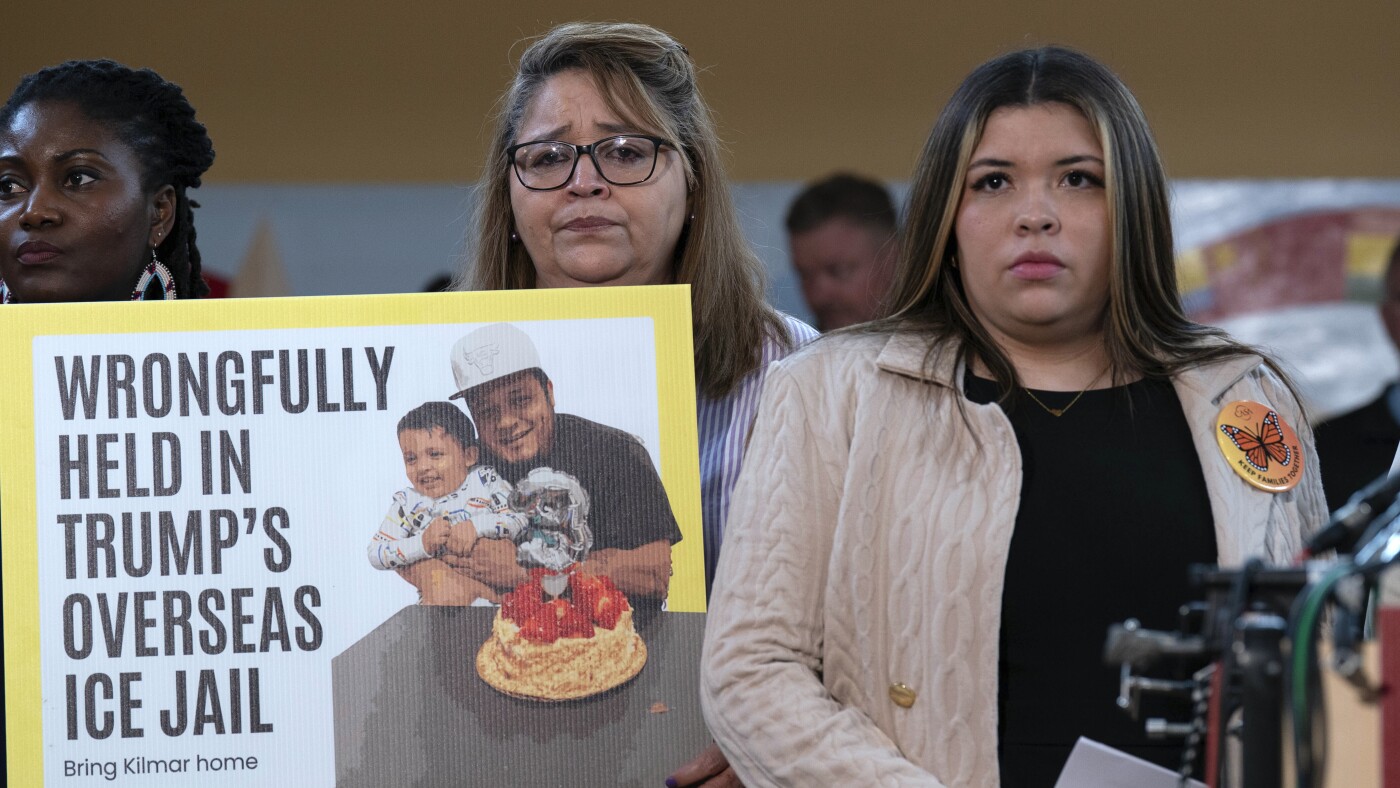The ordeal of Kilmar Abrego Garcia is a harrowing case that underscores the devastating consequences of flawed immigration policies and the brutal realities of detention systems in certain countries. His story, which began with a mistaken deportation from the United States, spiraled into a nightmare of physical and psychological torture within El Salvador’s notorious Terrorism Confinement Center (CECOT). This case is not just about one man’s suffering but a broader critique of systemic failures that allow such injustices to occur.
The Mistaken Deportation: A Systemic Failure
Abrego Garcia’s case highlights a critical flaw in immigration enforcement: the potential for wrongful deportation. The U.S. immigration system, while designed to enforce laws, is not infallible. Errors can occur due to miscommunication, inadequate documentation, or oversight, leading to irreversible consequences for individuals like Abrego Garcia. His deportation was not just a bureaucratic error but a life-altering event that exposed him to severe harm. This raises urgent questions about the safeguards in place to prevent such mistakes and the accountability mechanisms for when they do occur.
The consequences of wrongful deportation extend beyond the individual. Families are torn apart, livelihoods are disrupted, and lives are forever altered. Abrego Garcia’s case serves as a stark reminder that immigration policies must prioritize human rights and due process to prevent such tragedies. The U.S. government has a responsibility to ensure that individuals are not deported without thorough verification of their identity and legal status. The lack of such safeguards in Abrego Garcia’s case underscores the need for systemic reforms to prevent similar incidents in the future.
Inside CECOT: A Nightmare of Abuse
Upon arrival in El Salvador, Abrego Garcia was taken to the Terrorism Confinement Center (CECOT), a facility known for its brutal conditions. His account of the treatment he endured paints a picture of systemic abuse and dehumanization. Being stripped naked and having his head shaved were not merely procedural actions but deliberate acts of humiliation designed to break his spirit. Such practices are not isolated incidents but part of a broader pattern of abuse in detention facilities worldwide.
The physical and psychological torture Abrego Garcia endured is a testament to the inhumanity of the conditions in CECOT. Severe beatings, sleep deprivation, and forced kneeling are tactics used to instill fear and control. The denial of basic human necessities, such as adequate food and rest, exacerbates the psychological toll, leaving lasting scars on the victims. The overcrowded, windowless cells and constant bright lights create an environment of sensory overload, further degrading the inmates’ mental and emotional well-being.
Abrego Garcia’s experience is not unique. Numerous reports from other detainees highlight similar patterns of abuse in CECOT and other facilities. This suggests a systemic problem within El Salvador’s penal system, where human rights violations are normalized. The international community must hold El Salvador accountable for these abuses and demand reforms to ensure humane treatment of all detainees.
The Legal Battle and International Implications
Abrego Garcia’s lawyers have filed court documents detailing his ordeal, turning his case into a legal and political flashpoint. The legal arguments will likely focus on the principle of due process and the U.S. government’s responsibility to protect individuals from harm, even after deportation. The case raises broader questions about the U.S.’s role in ensuring the safety and well-being of deported individuals, particularly when there is a known risk of mistreatment in the receiving country.
The international implications of Abrego Garcia’s case are significant. It highlights the need for international cooperation to address human rights violations in detention facilities. The U.S. and other countries must work with El Salvador to implement reforms that protect the rights of detainees. This includes monitoring conditions in detention facilities, providing legal support to victims of abuse, and holding perpetrators accountable.
Echoes of a Broken System
Abrego Garcia’s story resonates with accounts from other deported individuals who have reported similar experiences of abuse and neglect. This suggests systemic problems within both the deportation process and the conditions of detention in certain countries. It demands a thorough examination of the policies and practices that allowed such an egregious error to occur and the mechanisms in place to prevent future abuses.
The U.S. immigration system must be reformed to prevent wrongful deportations and ensure that individuals are treated with dignity and respect. This includes improving verification processes, providing legal support to detainees, and establishing accountability mechanisms for immigration officials. Additionally, the U.S. must work with other countries to address human rights violations in detention facilities and ensure that deported individuals are not subjected to abuse.
A Call for Accountability and Reform
The ordeal of Kilmar Abrego Garcia serves as a powerful indictment of a system that can inflict immense suffering on vulnerable individuals. It is a call for accountability, demanding that those responsible for the initial error and subsequent mistreatment be held to answer. More importantly, it is a call for reform, urging a fundamental re-evaluation of immigration policies and practices to ensure that human rights are protected at every stage of the process.
The U.S. government must take responsibility for its role in Abrego Garcia’s deportation and the subsequent abuse he endured. This includes conducting a thorough investigation into the circumstances surrounding his deportation and implementing measures to prevent similar incidents in the future. Additionally, the U.S. must work with El Salvador to address the brutal conditions in CECOT and other detention facilities.
Remembering Humanity
In the end, Abrego Garcia’s story is a testament to the resilience of the human spirit in the face of unimaginable adversity. His willingness to come forward and share his experiences is an act of courage that deserves recognition and support. As we grapple with the complexities of immigration policy, let us not forget the human faces behind the headlines, the individuals whose lives are profoundly impacted by our decisions. Let the ordeal of Kilmar Abrego Garcia serve as a constant reminder of our shared responsibility to uphold the values of justice, compassion, and human dignity.
The international community must come together to address the systemic issues that allow such abuses to occur. This includes advocating for human rights, supporting victims of abuse, and demanding accountability from governments and detention facilities. Only through collective action can we ensure that stories like Abrego Garcia’s do not repeat themselves. His ordeal is a call to action, urging us to prioritize human rights and justice in our policies and practices.


